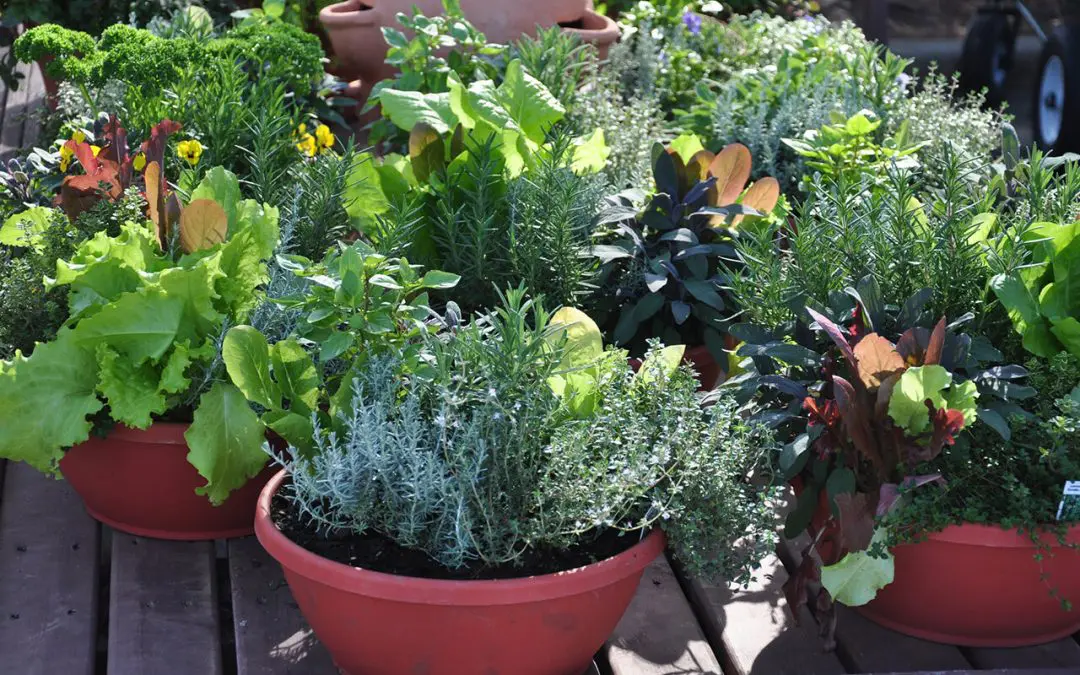Container gardening offers a versatile and accessible way to bring greenery and life to any space, whether you have a sprawling garden or a small balcony. With the right approach, even those with limited space or no outdoor area can enjoy the pleasures of growing plants. Here are ten essential tips to ensure success in your container gardening endeavors.
Container Gardening 101: Choose the Right Containers
Opt for containers that have drainage holes at the bottom to prevent waterlogging, which can lead to root rot. Additionally, consider the size of the container in relation to the plant you want to grow – larger containers provide more space for root development and stability for taller plants.
Select the Correct Soil
Use high-quality potting mix rather than garden soil, as it is specifically formulated to provide proper drainage and aeration for container plants. Avoid compacting the soil when planting, as it can hinder root growth.
Pick the Appropriate Plants for Container Gardening
Not all plants thrive in containers, so choose varieties well-suited to your space’s conditions. Consider sunlight, temperature, and space constraints when selecting plants for your container garden. Herbs, vegetables, flowers, and even small trees can all flourish in containers.
Provide Adequate Drainage
As mentioned earlier, drainage is crucial for the health of container plants. Elevate your pots with pot feet or place a layer of gravel at the bottom to ensure proper drainage and prevent water from pooling around the roots.
Water Wisely While Container Gardening
Container plants may require more frequent watering than those in the ground, especially during hot weather. However, it’s essential not to overwater, as this can cause root rot. Water the plants thoroughly when the top inch of soil feels dry, and aim to water in the morning to minimize evaporation.
Fertilize Regularly
Container plants rely on you for their nutrients, as the limited soil volume may not provide an adequate supply. Feed your plants a balanced liquid fertilizer every two to four weeks during the growing season to promote healthy growth and vibrant blooms.
Monitor Sunlight Exposure
Different plants have varying sunlight requirements, so observe how much sunlight your container garden receives throughout the day. Place sun-loving plants in areas that receive at least six hours of direct sunlight, while shade-loving plants should be positioned in areas with spotty or indirect sunlight.
Prune and Deadhead
Regular pruning and deadheading (removing spent blooms) encourage plants to produce new growth and prolong the flowering period. Trim back leggy stems and remove yellowing or dead foliage to maintain the overall health and appearance of your container garden.
Inspect for Pests and Diseases
Keep an eye out for signs of pests, such as aphids, mealybugs, or spider mites, as well as common plant diseases like powdery mildew or leaf spot. Early detection allows for prompt intervention, whether through manual removal, natural predators, or organic pesticides.
Protect from Extreme Weather
Container plants are more susceptible to temperature fluctuations than those planted in the ground. During periods of extreme heat, move containers to a shaded area or provide temporary shade with a canopy or umbrella. Conversely, protect plants from frost by bringing them indoors or covering them with a frost cloth.
Container gardening offers endless possibilities for creativity and experimentation, allowing you to cultivate a lush oasis regardless of space limitations. Following these ten essential tips, you can create a thriving container garden that brings beauty, fragrance, and joy to your home or outdoor area throughout the year.
Container Gardening FAQs
Which vegetables and herbs are best suited for container gardening?
Many vegetables and herbs thrive in containers, including tomatoes, peppers, lettuce, spinach, kale, carrots, radishes, basil, parsley, thyme, and mint. Choose compact or dwarf varieties whenever possible, especially for smaller containers.
What are the advantages of growing vegetables and herbs in containers?
Container gardening allows you to cultivate fresh vegetables and herbs even in limited outdoor spaces such as balconies, patios, or windowsills. It provides better control over soil quality, drainage, and pest management than traditional gardening.
What type of soil should I use in my containers?
Use a high-quality potting mix specifically formulated for container plants. This type of soil is lightweight, well-draining, and provides adequate aeration for plant roots.
How much sunlight do vegetables and herbs in containers need?
Most vegetables and herbs require at least 6 hours of sunlight per day for optimal growth and productivity. Place your containers in a location that receives adequate sunlight, such as a south-facing balcony or patio.
Homesmith Home Inspections offers home inspections to Houston and the surrounding area in Texas. Contact us to schedule our services.

